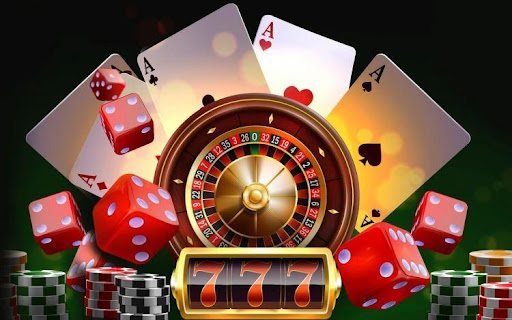Taking a scientific approach to poker

There is a lot of rubbish spoken about poker that gives players the complete wrong impression of the game. The biggest mistruth in circulation is that it is a game of chance, in which individual players have little to no agency and are subject to the will of the gods.
The second is that some players are just naturally better than others at poker, as if an ability to learn hands, rules and basic mathematical premises is a talent that we are born with.
In this article we will take a more rational, scientific approach to poker strategy to equip you with the tools to excel at the game. In doing so, we will recognise the role that chance does play in poker but also put paid to two myths outlined above.
Poker: What is it? Really?
You know that poker is a card game played by individuals with a number of different variants depending on where you are playing in the world. That is not up for debate, what is up for debate though is what the game really is.
Is it a light-hearted pastime? Is it a game of chance that anyone can succeed at with a bit of good fortune? Is it an art that can’t be learned? Or is it a game that anyone can master with the right guidance?
As you have probably surmised, the answer is the latter – poker is a game that you, your friends and even your elderly relatives could master with the right guidance and training. That’s because poker essentially comes down to mathematical problem-solving.
Not the type that would require you to work out the placement of brackets or remember specific formulas, but rather a simple kind of mathematics that anyone with a modicum of intelligence could understand.
The mathematics that you need to master in terms of poker is probabilities, as every single move in a game of Texas Hold ‘Em ultimately comes down to probabilities.
Whether it is the probability of the card you need appearing on the flop, or the probability of your opponents having a better hand than you. Having a basic understanding of probabilities is easy, but to excel at poker you’ll need much more than the basics.

(It’s not quite algebra, but the world of poker probabilities can be quite intimidating if you don’t do your research.)
Poker Charts – a Beginner’s Bible?
There’s a wide range of resources to help poker players better develop their skills, a good place to start would be memorising a large list of poker charts. These are comprehensive guides that are designed simplistically, to help players to better understand the fundamentals of poker.
Whether it is interpreting the best winning hands, calculating pot odds or common poker abbreviations mentioned throughout a game. Probability is the key foundation in which some charts have been designed, therefore providing new and upcoming players the best possible opportunity to succeed.
If you want to improve at the game, here are a couple of other key tools that you can utilise to boost your probability proficiency.
‘Probability For the Enthusiastic Beginner’ by David J. Morin
David J. Morin is the Co-Director of Undergraduate Studies and Senior Lecturer on Physics at Harvard University. He is also the author of the aforementioned book, which was written with the intention of explaining probabilities to high school students and enthusiastic beginners.
It is an easy-to-understand book that will give you a complete working knowledge of probabilities and by reading it, you will have a solid advantage over 99% of poker players. As it is an educational book, there are no chapters on poker, so don’t put down your reading glasses just yet…
‘The Mathematics of Poker’ by Bill Chen & Jerrod Ankenman
Published in 2009, this collaborative publication is the perfect book for anyone looking to apply probability and mathematics to the game of poker. The co-authors are successful poker players as well as quantative researcher with an extensive working knowledge of mathematics and computer science.
This book will help you put into practice the theories discussed in David J. Morin’s book on probabilities with great real-life examples of hand and pot odds.
Odds Calculators
Now that you have the educational information about poker under your belt, you’re going to want to put your new knowledge to the test. Online odds calculators or hand calculators are excellent tools to help you out in the beginning.
Record everything from your online or in-person games including the cards dealt to you, the community cards and what your opponents revealed. Then input this data into an odds calculator and it will show you the exact probability of every possible outcome.
By using this tool you will be able to pinpoint the areas that you have struggled to take from theory into practice. Then you can ensure you work on these deficiencies and improve as an all-round player.
Additional Areas of Focus
If you follow the advice above and approach poker as a science that can be mastered rather than a game, your skills will improve naturally over time. If however, you feel that you still have room to improve then try out some of the following tips:

Research psychology: If mathematics is the most important aspect of poker, psychology is the second. You may know for example, that there is a less than 5% chance of your opponent holding a hand that can beat yours.
Their betting habits however, may suggest that they have that hand and are supremely confident of beating you. If you stick rigidly to the mathematics you run the risk of losing out to a well-manoeuvred bluff from your opponent.
To minimise that risk, do your research on poker psychology. A good place to start is with anything written by Mike Caro, namely ‘The Body Language of Poker’ and ‘Mike Caro’s Book of Poker Tells.’
(Psychology plays a major role in tight hands between equally skilled players so don’t neglect it.)
Online poker: When you’re organising a friendly poker night with friends and you sit face to face with them every Friday night, you’ll very quickly start to learn their tells and betting patterns. Online however, you are randomly placed in a lobby with players that you have no knowledge about.
In addition to that, you can’t look into their eyes when the betting intensifies to gauge their confidence. Instead, you have to really focus on the bare basics of the game which will fine-tune your skills and make you a better player.
Utilise YouTube: Whilst the advice given in this article is solid and useful, it hasn’t been written by someone who has won six World Series of Poker bracelets. If you head over to YouTube though and search out Daniel Negreanu’s channel, you will have access to advice and tips from someone who’s done the latter!
Negreanu isn’t the only poker pro with his own YouTube channel though, there are dozens of other insanely experienced players posting on a regular basis. If you take advantage of this content and heed the rest of the advice in this article, you will be winning more often and thus, enjoying your poker more.




